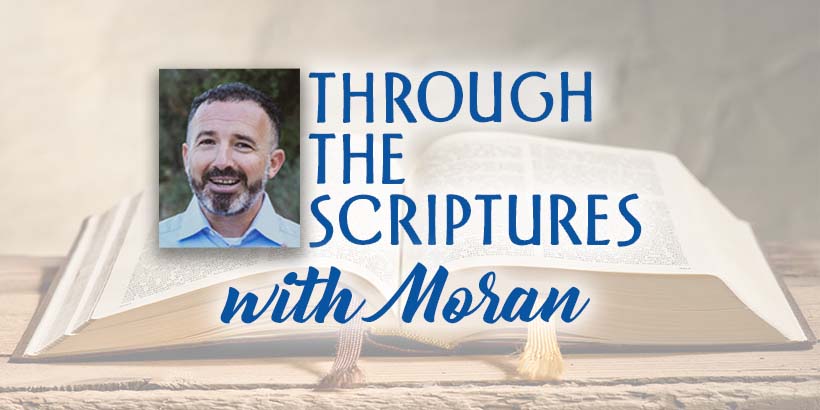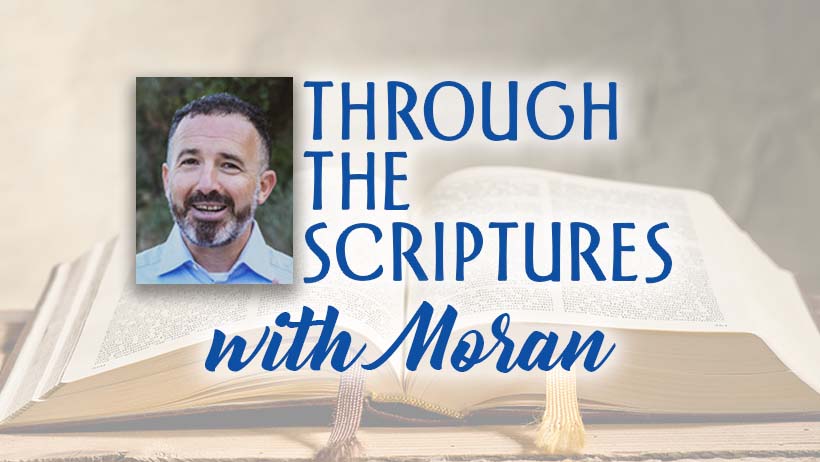
Parashat Pinchas
Parashah: Bamidbar (Numbers) 25:10-30:1
Haftarah: Jeremiah 1:1-2:3
With everything going on around us, in Israel and around the world, I believe we need to return to what anchors us. Not just tradition or ideas, but the Word of God itself.
I would like to encourage you to take the time to read the Word of God. Even if you’ve read it many times before, read it again. His Word is living. It speaks into every season of life. I can tell you from personal experience that as I’ve been writing this weekly commentary on the parashah for years, God continues to reveal new things to me in portions I thought I already knew well.
This week’s portion, Pinchas, really spoke to me again. As I read about his righteous zeal for the Lord, I kept thinking, how would we respond to something like that today?
Phinehas the son of Eleazar, the son of Aaron the priest, has turned away My wrath from the sons of Israel, in that he was jealous with My jealousy among them... Therefore, behold, I give him My covenant of peace.
Numbers 25:11–12
In today’s world, most people would probably be shocked by what Pinchas did. Many would call it murder or fanaticism. But God didn’t see it that way. He saw a man whose heart burned with the same zeal He had for the holiness of His people. This was not a violent or hateful act. It was a righteous zeal, deeply rooted in faithfulness to God and His covenant. It was an urgent response to sin that had openly defiled the camp of Israel.
Pinchas saw the people grieving at the entrance of the Tent of Meeting while blatant rebellion was happening in front of them. He acted not out of anger or pride but from a holy desire to honor God's Word. He stood for what was right when everyone else stood still. And because of his zeal, the plague that had already claimed thousands of lives came to an end.
To understand how serious this moment was, we need to look back at the end of last week’s reading. The people of Israel began committing immorality with the daughters of Moab. They bowed down to false gods and broke the covenant. God’s anger burned. He commanded Moses to execute the leaders who allowed this sin to grow.
But Moses didn’t follow that command exactly. Instead, he told the judges to punish only those who had personally sinned. Moses was a great leader, but like all of us, he wasn’t perfect. Perhaps he hesitated. Perhaps he hoped the situation would calm down. But then an Israelite man walked into the camp with a Midianite woman, right in front of everyone, and brought her into his tent.
That’s when Pinchas rose up. He took a spear, entered the tent, and stopped the rebellion. It was this act of righteous zeal that turned back God’s wrath and brought peace.
Now let’s look at the Haftarah, because the connection is powerful.
In Jeremiah chapter 1, we meet a young man who feels unqualified. He tells God, “I’m too young, I don’t know how to speak.” But God responds, “Before I formed you in the womb I knew you… I appointed you a prophet to the nations.” God puts His words in Jeremiah’s mouth and sends him out to confront a nation that had abandoned its covenant.
God says, “I remember the devotion of your youth… how you followed Me in the wilderness.” But Israel had exchanged the living God for lifeless idols. They had forsaken the fountain of living water and dug broken cisterns for themselves.
Like Pinchas, Jeremiah was called to act in a time of spiritual decay. His calling wasn’t easy. He would face opposition, rejection, and sorrow. But he spoke with righteous zeal, not to condemn, but to call the people back to God.
This brings us to today.
Here in Israel, and around the world, we are seeing so much confusion. There are physical attacks, political divisions, and spiritual apathy. God’s truth is being ignored. Idols, whether they are comfort, power, or self, are being worshiped again. We are watching compromise grow inside the camp.
God is still asking, “Who will be zealous for Me?”
Not with violence. Not with pride. But with love, with truth, with courage, and with righteous zeal—the kind that says, “I will stand for what honors God, even when it’s hard.”
We need hearts like Pinchas, hearts that are moved by God’s holiness. And we need the voice of Jeremiah, willing to speak truth in love, even when the world doesn’t want to hear it.
So I ask you, as I ask myself:
Are we standing for the Lord today, in love and humility?
Are we choosing His ways, even when it costs us?
Are we willing to be faithful in a generation that is drifting?
Let’s not be silent while sin spreads in the camp. Let’s return fully to God. Let’s let our lives reflect a holy, humble, and righteous zeal for Him and His Word. Let’s take our place in His story, not with fear, but with faith. And let’s encourage others to do the same.
Shabbat Shalom,
Moran


2 Comments on “When Silence Fails”
Unfortunately the pulpits are silent on this topic and confused the congregation is saying genocide or is it not? What’s the difference? Is this clear in the minds of believers? It’s not!
Great article addressing this — long overdue!
Frank
Thank you, Moran, for your clear explanation, understanding, and connection to today and our responsibility through this passage of Pinchas.
I agree and stand with you to speak truth and encourage others to read God’s Word, be brave, and learn from it.